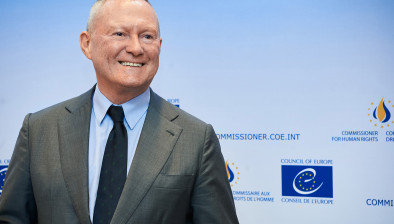NI High Court: ‘Racial and cultural background’ factor rejected as bar to order freeing children for adoption

Northern Ireland’s High Court has upheld an order freeing twin girls for adoption despite their mother’s contention that her aunt was a suitable kinship carer in light of her ability to accommodate the twins’ mixed racial and cultural background.

About this case:
- Citation:[2024] NIFam 1
- Judgment:
- Court:NI High Court
- Judge:Mr Justice David McFarland
Delivering judgment for the High Court, Mr Justice David McFarland stated: “The ability to cater for the mixed racial and cultural background of the twins is an important factor, but the factor cannot be promoted to the extent that it makes an unrealistic option a realistic one. It is not, and cannot ever be, a deciding factor.”
Background
Twin girls became known to social services in Northern Ireland arising from issues with the care provided to them since birth by their parents, including exposure to domestic violence, deficient parenting capacity and neglect.
The Trust made significant efforts to support the parents, but due to ongoing concerns, sought care orders on 30 April 2020, which were granted by Craigavon Family Proceedings Court on 27 June 2022. The only kinship placement suggested was the twins’ maternal grandmother, who had been rejected as she failed to respond to contact from the Trust or to attend a meeting with it. The care plans stated that the twins would be placed into approved foster care until alternative kinship carers were put forward.
On 4 October 2022, the care plans became plans for adoption. After this decision, the mother suggested that the twins’ great aunt would be a suitable kinship carer. The Trust contacted the aunt in November 2022, but found her to be unsuitable.
On 9 June 2023, the Trust applied to free the twins for adoption, and the application was heard on 25 October 2023. The twins’ aunt attended the hearing and indicated her willingness to act as carer for the twins. Having reserved judgment, His Honour Judge Mark McGarrity delivered his ex tempore decision freeing the twin girls for adoption on 8 November 2023.
Both parents appealed, raising various grounds including that the judge had attached insufficient weight to the availability of an appropriate kinship carer and to the racial and cultural background and needs of the twins, and that the evidence was insufficient to support the conclusion that freeing was the necessary option for the twins.
The High Court
Mr Justice McFarland considered the legal principles arising in relation to applications to free children for adoption, finding that as per Re CB [1993] 1 FLR 920 and Re Joy [2022] NICA 63, “an appellate court should not interfere with the lower court’s decisions unless they are wrong”.
The court emphasised that before freeing a child for adoption, “a court must be satisfied that such an order is both proportionate and necessary by carrying out a holistic analysis of the realistic options for the child. Ultimately, the decision will be based on what is considered to be in the best interests of the child.”
Noting the two-part test in the Adoption (NI) Order 1987, the court considered that it must firstly “be satisfied that adoption would be in the best interests of the child, and secondly, should the parents not consent, then the court must determine if they are withholding their consent unreasonably”.
Finding that the ‘best interests test’ must be approached by applying the Supreme Court judgment of Re B [2013] UKSC 33, Mr Justice McFarland summarised that “adoption is a “last resort” (Lord Neuberger) when “nothing else will do” (Baroness Hale) and when “it is really necessary” (Lord Kerr).
Noting the need for ‘holistic evaluation’ in light of Re G [2013] EWCA Civ 965 and Re H-W [2022] UKSC 17, which need only cover “the options which are realistically possible” as per Re B-S [2013] EWCA Civ 1146, the court recognised that there was “no right or presumption that a child should be brought up by their natural family” in line with Re H-W.
The court considered that the test to dispense with a parent’s consent “is an objective one with the court determining what a reasonable parent would do in the same circumstances”.
Turning to the facts of the case, Mr Justice McFarland pointed out that at the time that the ‘freeing’ order was made, the twins were seven years old with the Trust having played a role during the entirety of their lives, and that it “would have been obvious to the parents, and those advising them, that rehabilitation back into the care of either parent was not a realistic option, and that other kinship carers would have to be considered”.
Noting inter alia His Honour Judge McGarrity’s criticism of the aunt’s “inexplicable” delay in contesting the Trust’s rejection of her as carer until the hearing in October 2023, Mr Justice McFarland found: “In the overall context of this case, delay is a significant factor, and I can see no valid criticism of Judge McGarrity in his approach.”
Turning to the racial and cultural background of the twins, the judge considered: “The twins have a mixed ethnicity — white European/black African… The current carers, and prospective adopters are a couple from Northern Ireland. As white Europeans they share the same ethnicity as the father but not his cultural background which derives from his country of birth in southern Europe.”
Finding that “the issue falls to be considered as part of the welfare checklist and in the proportionality exercise but only insofar as this relates to the realistic options for these children”, Mr Justice McFarland opined: “The only realistic options are in a long-term placement outside the family network, which would entail either long-term fostering or adoption. The ability to cater for the mixed racial and cultural background of the twins is an important factor, but the factor cannot be promoted to the extent that it makes an unrealistic option a realistic one. It is not, and cannot ever be, a deciding factor.”
Finding the options analysis undertaken by His Honour Judge McGarrity, the Trust and the guardian to be “perfectly adequate”, the court moved to consider the ‘objective test’ in relation to the dispensing of the parents’ consent, being “what a reasonable parent in the position of these parents would do”.
Conclusion
Concluding that the “inability of both parents to act reasonably when approaching the question of consent required Judge McGarrity to dispense with the consent of each parent”, Mr Justice McFarland dismissed the appeal.
A Health and Social Care Trust v. A Mother and A Father [2024] NIFam 1










